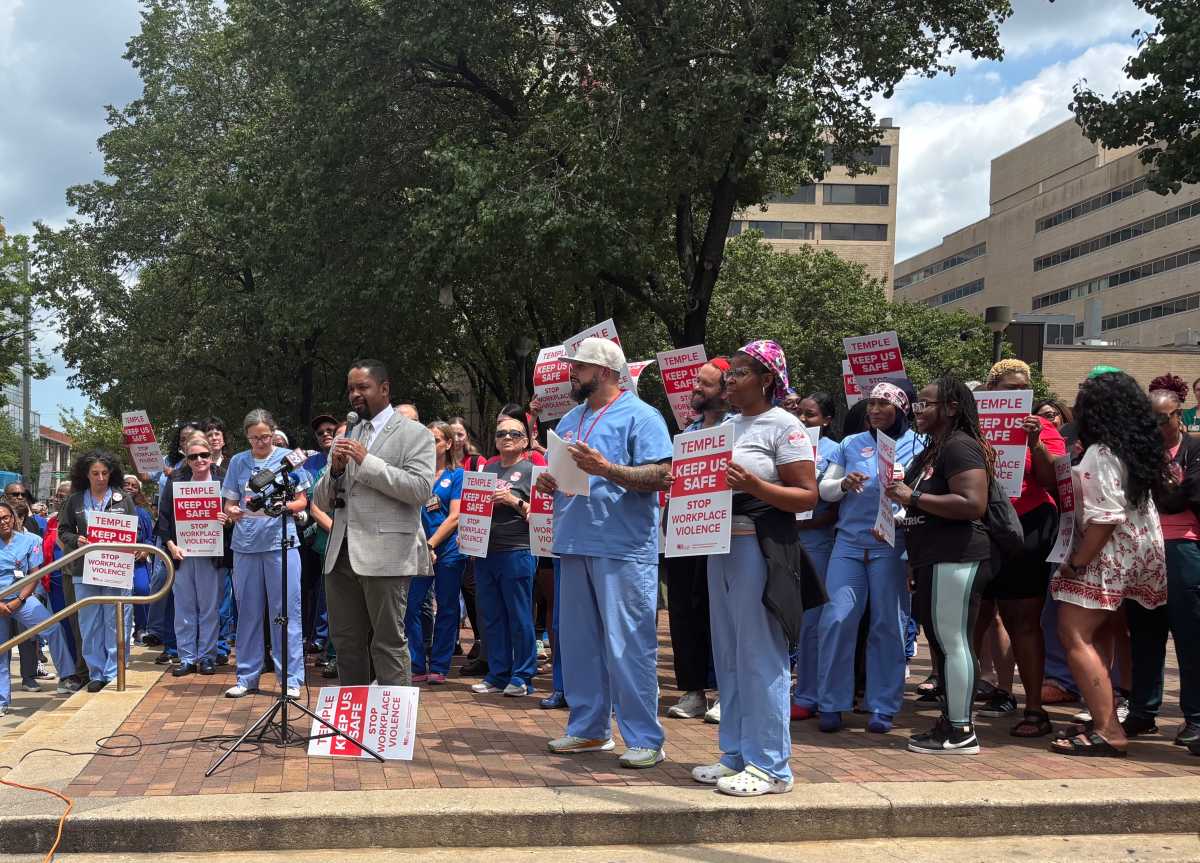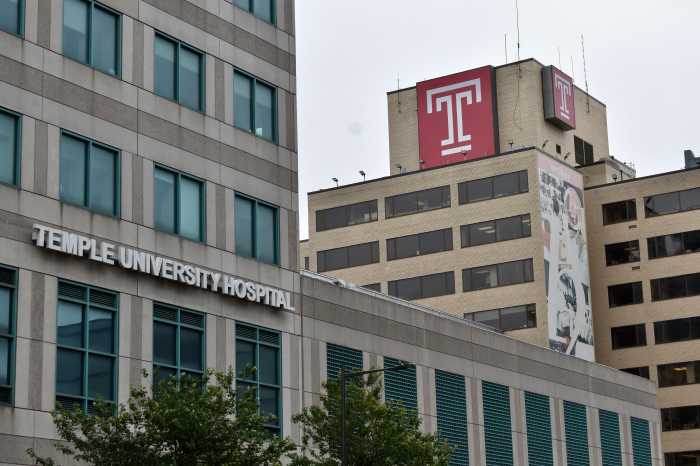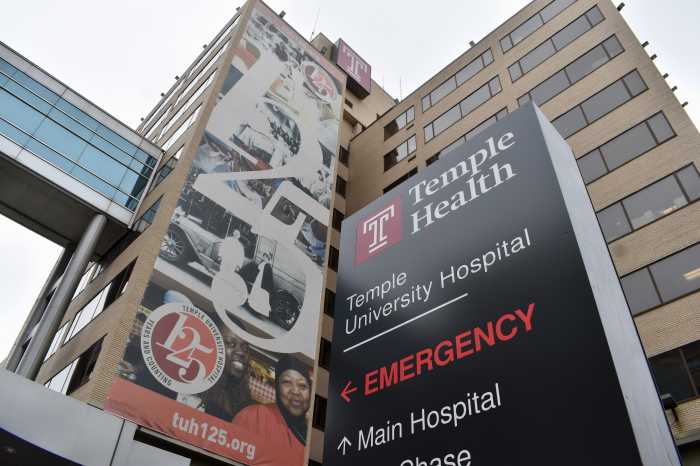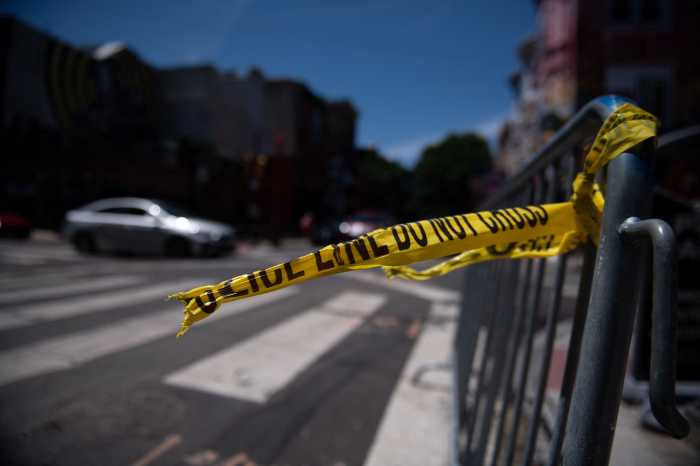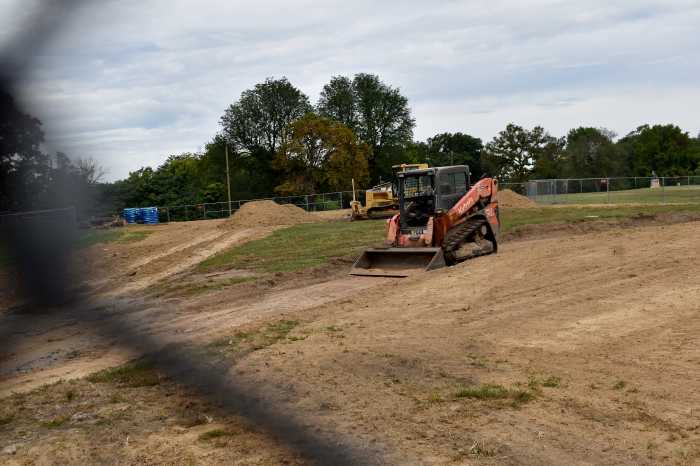“What do we want? Safe staffing! When do we want it? Now!”
Chants of solidarity rang out for nurses and other hospital staff during a press conference on the steps of Temple University Hospital in North Philadelphia Wednesday.
Nurses, technicians, doctors and supporters, including Pennsylvania State Sen. Sharif Street and Philadelphia Councilmember Jeffrey Young, Jr., gathered together to demand a safer workplace environment at Temple after an active shooter alert took place in the Emergency Department on July 13.
The event was organized by Temple University Hospital Nurses Association and Temple Allied Professionals, which are affiliates of PASNAP, the Pennsylvania Association of Staff Nurses and Allied Professionals, to bring more attention to the safety concerns raised during the incident.
They say the hospital administration didn’t take what happened seriously enough.
Active shooter alert
On July 13, a patient arrived at the Temple University Hospital Emergency Department in North Philadelphia, visibly anxious, saying he was being chased. According to staff present, after pacing around the ER, he tried to leave, but rushed back in as gunshot sounds could be heard near the ambulance bay.

Patients and staff quickly sought cover. An active shooter alert was initiated. The Philadelphia Police Department was contacted, and the patient was taken into custody.
No one was injured, but staff say many remain shaken by the incident, which exposed major gaps in the hospital’s safety protocols — including reports of broken security doors.
Mauren May, a nurse in the neonatal ICU and president of PASNAP, and Marie LoPresti, the emergency department’s head nurse, were working that day.
May was scrubbed into a cesarean birth at the time of the alert and was locked in the OR, but when she got back to her unit, the parents there were frightened and scared.
She said, “All we were being told was to stay away from the ED. We had to comfort the patients and tell them that everything was okay. That is what we do. We are a healing mission, and we are a patient’s advocate.”
LoPresti said, “The triage nurse in the ED heard shots and told me we needed police. I called them and at some point, a person that was involved in this situation ran into the ED. We did not know his role. All I know is that patients were running into other areas. The nurses were trying to get patients into locked areas, so they were safe. My nurses made sure everybody got to a safe place. So did the doctors and technicians. And they did all this, while still continuing to provide care to them.
“It is a terrifying situation, but the problem is it’s not the first time. We need to do better. We need to provide the safest place we can for these patients to come, the safest place for our workers to work. That is not our job. That is Temple’s job. We just want our patients and our staff to be safe. And that’s it. That’s the bottom line.”
Carlos Aviles, a pharmacy technician and president of Temple Allied Professionals and Marty Harrison, a nurse and president of Temple University Hospital Nurses Association, said they’ve been raising concerns with hospital leadership for years — and are now turning to the public for support.
“This is how we get Temple to move off its position and to invest what we need in staff safety,” Harrison said. “Because when the staff is safe, the patients are safe, and that is our first priority.”
Among the requested changes are increased staffing — including more support from Philadelphia and Temple police — additional personnel trained in de-escalation techniques to assist patients or families in crisis, and enhanced security measures.
Hospital leadership’s response
According to nurses and technicians, hospital leadership chose to minimize the event, ignoring the reality of the risks frontline caregivers face everyday.
Many staff and even physicians dispute how Temple University Hospital president and CEO Abhi Rastogi downplayed the incident in an email.
The letter sent to staff said: “We want to be clear: at no point was there an active shooter in the Emergency Department or anywhere else on campus. The text alert was sent out of an abundance of caution in response to a security incident that was later confirmed to be off campus.”
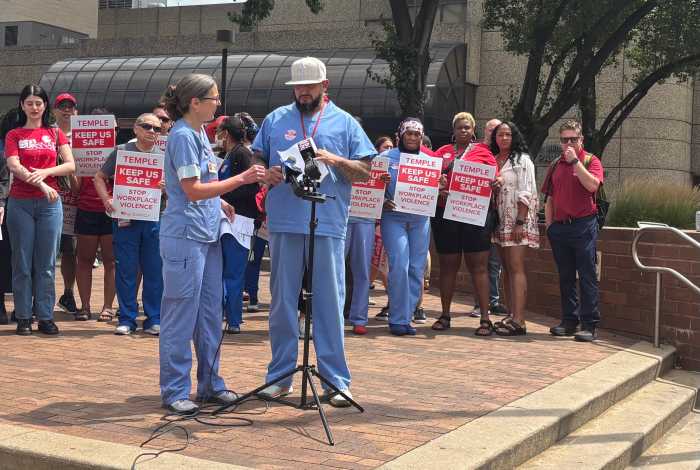
In a statement to Metro, Temple Health said that the safety and security of their patients and staff is their highest priority.
“We maintain comprehensive safety protocols at the Temple University Hospital – Main Campus, including weapon detection systems at all entrances, metal detection and x-ray machine in our Emergency Department, and a dedicated 24/7 police presence. We also have an active Workplace Safety Committee that encourages employee participation to help identify and address safety concerns. These measures are continuously reviewed and enhanced based on staff input and evolving best practices.”
Temple Health leadership explained that after the alert was initiated by the staff, the situation was quickly assessed by the Temple University Police Department, Philadelphia Police Department and SEPTA Police Department and confirmed there was no active shooter in the Emergency Department or on the Health Sciences Campus. After the event, staff were offered emotional support resources and leadership visited the Emergency Department to listen to staff concerns.
“We remain committed to maintaining open communication and being present for our teams — before, during, and after challenging situations.”
Workplace violence in hospitals
According to the U.S. Bureau of Labor Statistics, healthcare workers are 73% more likely to suffer a non-fatal injury at work compared to workers overall. The risk of workplace violence in healthcare continues to grow, but the need for better investment in safety comes at a time when cuts to Medicare are affecting hospital budgets.
State Sen. Sharif Street spoke at the press conference to offer his support for more funding for Temple University Hospital. He said adequate staffing is important to reduce delays in care, which can cause tensions to rise. He called hospital staff heroes, but said they are not superheroes and shouldn’t be expected to be.
“When we say we appreciate them, we need to make those investments to say we appreciate them. I have fought for money for Temple and will continue to do it in this budget again and again and again,” Street said.
Legislation aimed at addressing hospital violence is moving forward. A Pennsylvania workplace violence bill, which would establish violence prevention committees in healthcare facilities, passed the House with strong bipartisan support and is now under consideration in the Senate.
Temple University Hospital Nurses Association and the Temple Allied Professionals plan to make safety a key part of contract negotiations which started this month. Both current contracts expire Sept. 30.



